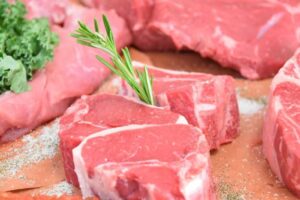
In January 2025, the volume of foreign currency purchases by the Ukrainian population exceeded the volume of its sales by $1 billion 479.8 million, which is 34.1% higher than in January 2024 and 13.6% higher than in December 2024 and is the highest figure since December 2012.
According to the NBU’s website, compared to December, cash currency sales decreased by $157.1 million, while purchases decreased by only $63.4 million to $2 billion 430.9 million, resulting in an increase in the negative balance to $1 billion 290.3 million.
In addition, in January of this year, the sale of non-cash foreign currency decreased by $69.1 million, while its purchase increased by $14 million to $460 million, which led to an increase in the negative balance to $189 million.
At the same time, it is worth noting that in the first half of January, when the hryvnia was weakening, the volume of purchases was higher, and by the end of the month, after the national currency strengthened, the daily negative balance was reduced, and only on the last day of the month and in early February was a significant increase in demand recorded again.
In the legal entities market, after a jump in purchases of foreign currency by bank clients in December to $8.41 billion from $6.22 billion in November, in January, purchases decreased to $5.56 billion, which is only 10% higher than in January last year.
At the same time, the sale of foreign currency by bank clients also fell significantly in January this year, to $3.78 billion from $4.96 billion in December, which is 10% less than in January last year.
As for the volume of transactions between banks, it also decreased compared to December – from a record high of $7.96 billion since the beginning of the war to $6.12 billion. However, this figure is 40.8% better than in January 2024.
As reported, the official hryvnia exchange rate in the first half of January fell from 42.0295 UAH/$1 to a new all-time low of 42.2841 UAH/$1, but in the second half of the month it strengthened to 41.8242 UAH/$1.
The National Bank’s net sale of foreign currency on the interbank market in January decreased to $3.75 billion from a record high of $5.28 billion in December, although this is significantly higher than the January-2024 figure of $2.53 billion.
In total, the volume of foreign currency purchases by the Ukrainian population in 2024 exceeded the volume of its sales by $12.22 billion, which is 2.5 times or $7.43 billion more than in 2023, but thanks to large-scale foreign aid, international reserves increased to $43.8 billion last year.
In 2024, the official hryvnia exchange rate against the US dollar weakened by 10.6%, or UAH 4.02, including 0.9%, or 37 kopecks, in December.

Cabinet furniture manufacturer Accord Import (Khmelnytsky) will expand its production capacity by almost three times by building a new plant in Khmelnytsky, where it plans to create 140 jobs, according to Dmytro Kysylevsky, deputy chairman of the Verkhovna Rada Committee on Economic Development.
“Construction of a new cabinet furniture plant has started in Khmelnytsky. The project’s investor is Accord Import. After the launch of the new plant, its production capacity will increase from 420 thousand square meters to 1.2 million square meters of cabinet furniture per month. This will allow the company to enter the top 5 manufacturers of cabinet furniture in Europe,” he wrote on his Facebook page on Tuesday.
According to the MP, the amount of investment in the new project is $14 million. The launch of the first production lines is scheduled for July 2025, and the new plant should reach full capacity in September.
Kysylevsky noted that a 1.1 MW solar power plant has been built and an additional 2.8 MW is under construction to meet the electricity needs, and a gas piston plant has been purchased.
“At present, the existing Accord Import facility is 100% utilized. About 70% of the company’s cabinet furniture orders come from the international retail chain JYSK, which in 2025 increased the volume of cabinet furniture orders from Ukraine by a third,” Kysylevsky wrote.
According to the company’s Facebook page, Raiffeisen Bank has extended the term of the credit line under this contract, which was granted at the end of 2023, and the term of the ECA insurance contract for Accord Import.
“Thus, Raif and ECA have supported furniture exports for 2025 to Denmark, the Netherlands, Hungary, Bulgaria, Poland, Sweden, Germany and Spain,” the company wrote.
According to Kysylevsky, in general, Accord Import exports 96% of its products to the EU countries, and the launch of the new plant will expand the geography of exports to the Middle East, South Asia, and South America.
The MP also clarified that the owners of Accord Import, the Grabar family, started out as furniture importers, while now it is Ukraine’s largest exporter of cabinetry.
He also added that to replace the imports of cellular cardboard used by the company for furniture packaging, another company is currently under construction in Khmelnytskyi region to produce this product
. “And the supplier of wooden boards for Accord Import is Kronospan, which recently launched a production line in Rivne region,” Kysylevskyi added.
According to the Clarirty Project, Accord Import LLC was registered in Khmelnytskyi in August 2015. The company’s authorized capital is UAH 42.105 million, and the owners are Mykola, Ruslan, and Vadym Hrabar in equal shares.
In January-September 2024, the company increased its net profit by 23% compared to the same period in 2023 to UAH 120.6 million, with net revenue growing by 27% to UAH 1 billion 271 million.

The purchasing power of Europeans in 2024 increased by 3.9% and reached 18.768 thousand euros per capita, according to the research company GfK.
In total, the population of Europe had about 12.9 trillion euros available last year, which could be spent on food, housing and utilities, insurance and pension savings, recreation, mobile communications, and other purchases.
At the same time, disposable income indicators vary significantly among the 42 countries whose data were analyzed by GfK. The highest results were recorded in Liechtenstein, Switzerland, and Luxembourg, while the lowest were in Ukraine, Kosovo, and Belarus. As a result, the difference between the incomes of residents of Liechtenstein and Ukraine exceeds 24 times.
16 out of 42 countries exceeded the regional average, while 26 countries had below-average purchasing power.
“The nominal growth of purchasing power in Europe is 3.9%, which is much more moderate than in the previous two years. However, at the same time, the inflation rate has also slowed down,” NIQ-GfK expert Markus Frank said in a statement.
The top three countries in terms of purchasing power have not changed compared to the previous year: Liechtenstein – 70.18 thousand euros per capita (3.7 times higher than the average value for all countries in the region), Switzerland – 52.566 thousand euros (2.8 times higher), Luxembourg – 41.785 thousand euros (2.2 times higher).
The top ten also includes Iceland, Denmark, Austria, the United Kingdom, Norway, Germany, and the Netherlands. At the same time, the UK added three positions at once and took seventh place. The Netherlands rose to 10th place last year from 12th in 2023, pushing Ireland out of the top ten, which moved to 12th place from 6th.
In Ukraine, which rounds out the ranking and has continued to confront Russia’s full-scale military aggression since February 24, 2022, disposable income per capita is 2,878 thousand euros (15% of the European average).
Source: http://relocation.com.ua/purchasing-power-of-europeans/

IC “Express Insurance” (Kiev) in January 2025 collected insurance premiums in the amount of UAH 102.6 million, which is 71.9% more than in January 2024. According to the insurer’s website, in January payments amounting to more than UAH 34,4 mln were made, which is by 17% more than in the same period of 2024.
Including payments on hull insurance amounted to UAH 27 million (+5.3%), on MTPL – UAH 6.8 million (more in 2.4 times), payments on other insurance contracts – UAH 660 thousand.
“The growth of payouts on MTPL is a direct result of clients’ confidence in the company and increase in the number of concluded contracts”, – is noted in the message.
ALC “Express Insurance” was founded in 2008 and is part of the group of companies “UkrAVTO”. The company specializes in automobile insurance. Stably high speed of events settlement in IC is provided by optimal interaction with partner service stations.
Since April, 2012 IC “Express Insurance” is an associated member of the Motor Transport Insurance Bureau of Ukraine.

Schneider Electric Ukraine (Schneider Electric Ukraine, Kyiv), which signed a memorandum with the Ministry of Education and Science of Ukraine last year, plans to train 1 million people in energy management in 2025, CEO Mykhailo Bubnov said.
“The company’s priorities for 2025 include achieving sustainable development goals, including supporting 1000 leading suppliers in halving CO₂ emissions,” he said in a blitz interview withInterfax-Ukraine.
According to him, Schneider Electric views Ukraine as a strategically important market, and the company’s medium-term strategy involves the introduction of digital solutions to optimize energy consumption, reduce costs and ensure energy independence both at the business and household levels.
“One of our key objectives is to create conditions for the widespread adoption of smart technologies. We believe that every household in Ukraine can become independent in energy production and consumption by integrating solutions such as smart transformers or mini-wind turbines,” Bubnov said.
He clarified that as part of its strategy, Schneider Electric Ukraine actively cooperates with vocational education and has committed to modernizing the training facilities of vocational institutions. In addition to supplying training electrical stands and other technical equipment, the company has also created an innovative demonstration and training hub and is working on developing integrated training courses that include up-to-date knowledge of energy management, automation, and digital technologies.
The CEO clarified that Schneider Electric Ukraine is currently a multifunctional enterprise that includes commercial divisions in Kyiv, Dnipro, Lviv, Odesa, and Mykolaiv, a warehouse of equipment and components in Kyiv, a service and information support center, a design bureau, authorized training centers, and a support service. The company employs about 100 people and also has an extensive network of distributors, stores and specialized partners throughout Ukraine.
Bubnov added that in the near future the company plans to expand its product line focused on the development of renewable energy sources, including solar and wind power plants, and will continue to develop the infrastructure of charging stations for electric vehicles.
According to YouControl, in 9 months of 2024, Schneider Electric Ukraine increased its revenue by 12.7% to UAH 1 billion 352.24 million, while its net profit halved to UAH 154.56 million.
Source: https://interfax.com.ua/news/economic/1045984.html

In January, Ukraine increased pork imports, the total volume of which exceeded foreign purchases in October-December 2024, the Pig Producers of Ukraine (PUA) association reported, citing preliminary customs statistics.
“During the first month of the year, Ukraine imported about 323 tons of pork, which is more than twice the total volume of products imported in October-December last year, as well as in January 2024. Although there has been a revival in import activity, the import flow is not so active as to significantly affect the domestic market,” the industry association noted.
The analysts drew attention to the fact that the increased interest of Ukrainian meat market players in imported raw materials has led to an increase in domestic pork prices.
“The average purchase price of slaughterhouse pigs in January increased by 5.5% compared to December, which is an atypical price behavior for the winter period, as it was the market’s response to a decrease in domestic supply. European pork prices, on the other hand, continued their typical seasonal decline. Therefore, although the average customs value of a kilogram of imported pork was higher than it was recorded last year ($2.84 vs. $2.52 per kg excluding VAT on average in 2024), a number of meat processing enterprises took the opportunity to optimize raw material costs in this way,” the experts noted.
They reminded that imports of pork have historically played a role of leverage on domestic prices, but currently its volumes do not put pressure on quotations, as most meat processors do not currently feel the inflow of imported raw materials.
Exports of pig meat in January were slightly lower than imports, amounting to 295 tons. In addition to the main sales markets (UAE, Hong Kong, Malaysia, Liberia), pork supplies to Georgia resumed at the beginning of the year, the USBA stated.